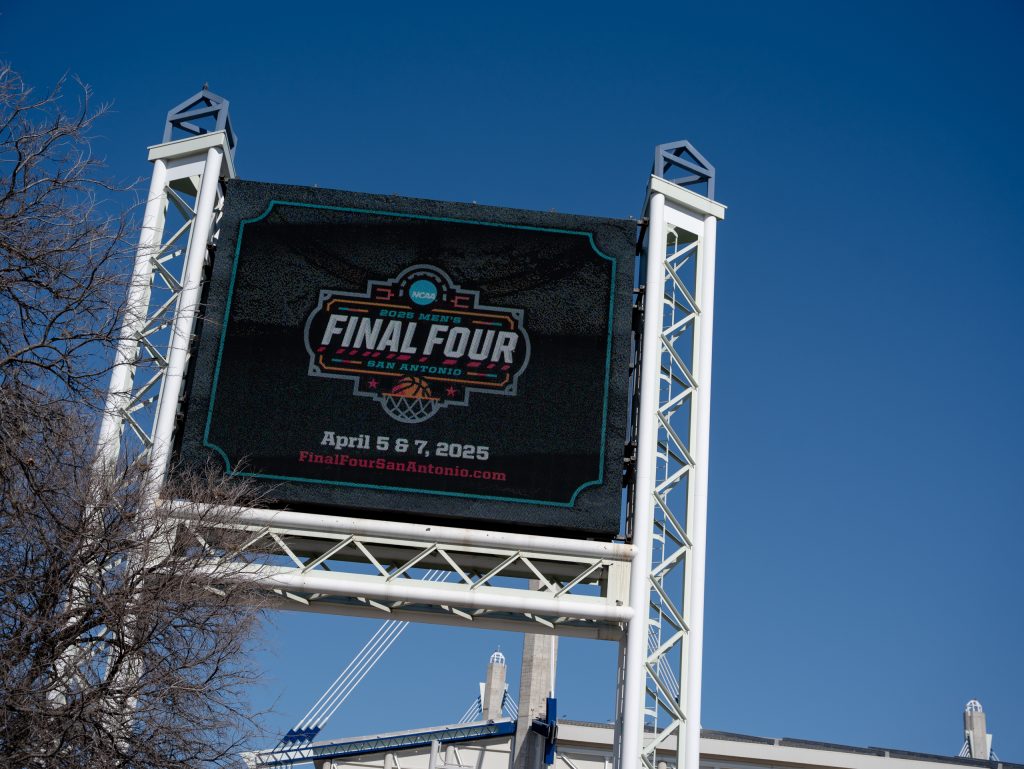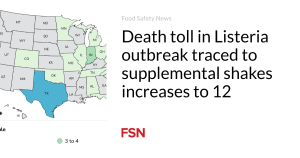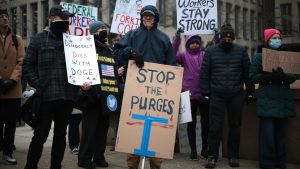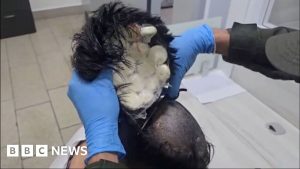Company is coming, and with San Antonio set to host thousands for one of the largest sporting events of the year, the city is officially tidying up.
More than 100,000 people are expected in downtown San Antonio for the 2025 NCAA Men’s Final Four tournament, April 4-7.
The event triggers an ordinance that declares the public property, public leased space and private property in an area of downtown a “clean zone” from April 3 to April 7.
In the clean zone (see map), all vendor requests to sell goods or services within the area must be reviewed and approved by the event promoter — in this case, the NCAA — and the vendor must obtain a clean zone license permit from the city.
The goal is to control ambush marketing, or an influx of vendors downtown looking to take advantage of a major event like the Final Four during which visitors to San Antonio flood the streets and businesses.
Ambush marketing is considered any activity in which vendors, or other entities that are not sponsors of the event, associate themselves with the event.
The geographic clean zone aims to reduce unlicensed merchandise peddled downtown — and there’s a penalty for breaking the rules, according to the ordinance passed in 2009.
Violations come with a criminal penalty of $2,000. Read more here.
While the constitutionality of clean zone ordinances has been challenged in court, they are commonly used by cities nationwide in competitive bids for the Super Bowl, March Madness and the Olympic Games.
A clean zone, as recommended by the NCAA, was first used in San Antonio for the Men’s Final Four tournament in 1998 and has since been deployed for other events like the annual Alamo Bowl, the 2018 Men’s and 2021 Women’s Final Four tournaments.
“It’s a requirement of any NCAA championship bid,” said Elena Wells, executive director of the San Antonio Local Organizing Committee, which helps produce the event.
“With events of this size, there are lots of people that try to pop up and sell different merchandise or put their ambush marketing out there,” Wells added.
The NCAA expects host cities to establish the clean zone to protect its sponsors, trademarks and merchandise licensees, she said.
“Because the NCAA is very protective of their brand and their corporate champions who fund their organization, they bring people in, or they work with [the San Antonio Police Department] and hire off-duty officers to make sure that any code violations are being reported,” Wells said.
But because downtown San Antonio is a designated historic district, most ventures related to everyday commercial activity and signage are already controlled and rules enforced year-round.
The clean zone boundaries for the Final Four encompass event venues, official event hotels, fan hotels and high-traffic areas in the public rights of way, like sidewalks.
Safety is also a concern for pedestrians, especially when it comes to activity or signs that could force people off the sidewalk into a street.
Wells said her first job with hosting Final Four events in San Antonio was as the “clean zone person” in 2004, and keeping the sidewalks clear was a lesson learned from that experience, she said.
“Back in the day, a lot of it was around ticket scalping,” or unauthorized sales of game tickets, she said.
The ordinance does not address issues related to unsheltered individuals and keeping them out of the clean zone, she said.
“We want to make sure that the city is displayed for all of our visitors in a way that is just beautiful and clean,” she said.








